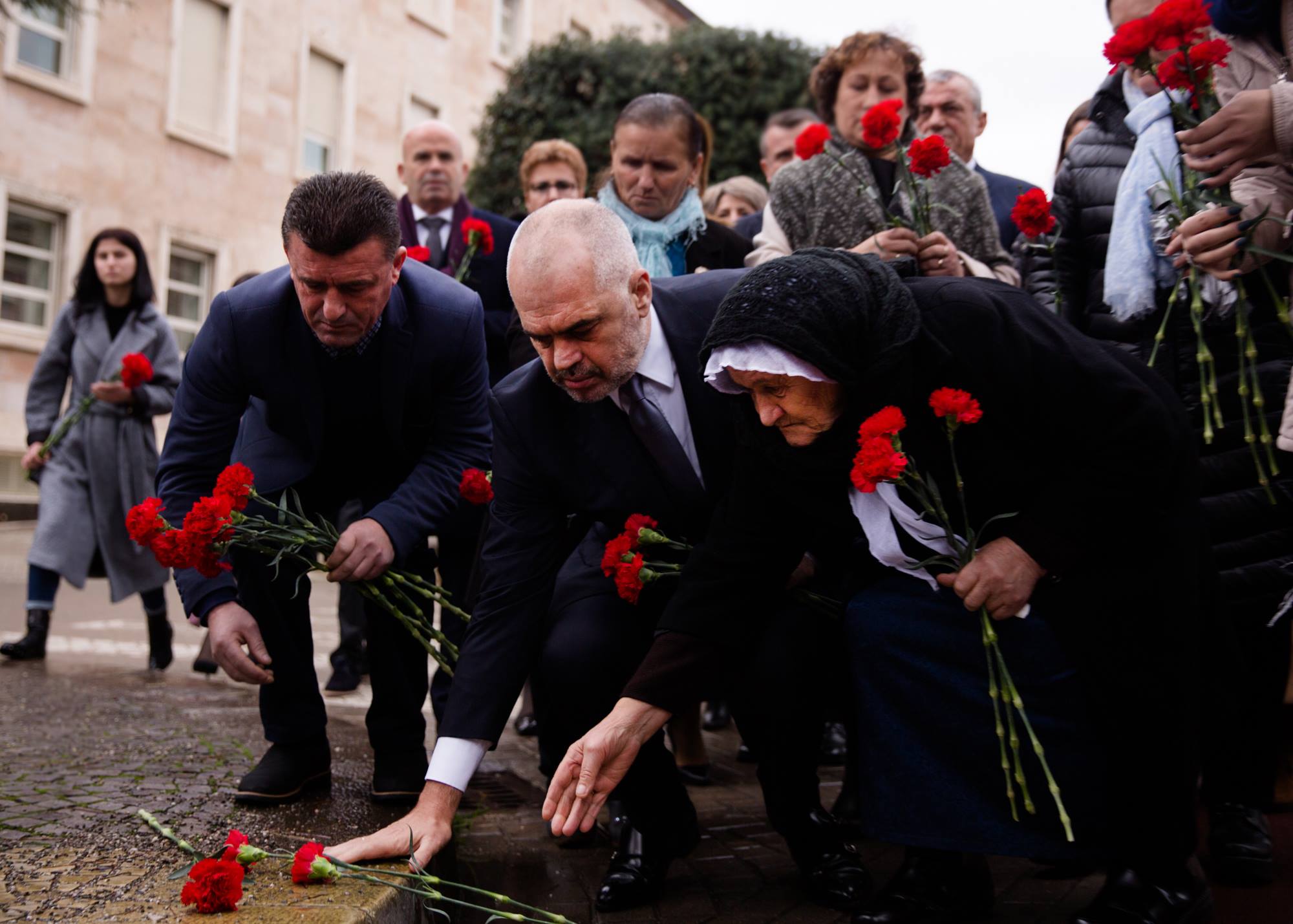Artan Hoxha reveals details of audio evidence from January 21 killings

Photo: Edi Rama and the families of victims from the January 21, 2011, protest.
What is the news: Investigative journalist Artan Hoxha, in a recent interview, disclosed details from an audio recording submitted to SPAK. The recording captures key communications within the Guard of the Republic during the January 21, 2011 protests, potentially revealing orders that led to the fatal shootings of four protesters.
Why this news is significant: Hoxha’s revelations bring renewed attention to a pivotal moment in Albanian politics, with the potential to reshape the public understanding of the killings and legal responsibility of those involved. His insights indicate a clear command structure and refute claims that the shootings were spontaneous.
Interview highlights:
- Audio details: Hoxha explained that the audio captures Guard commanders issuing explicit orders during the tense standoff. He described one chilling directive to open fire if protesters crossed the wire barrier. The recording spans 34 minutes, covering moments before and after the shootings, with officials primarily focused on guard injuries rather than civilian casualties.
- Command and execution: According to Hoxha, the recording includes directives from the Commander General of the Guard, Ndrea Prendi, who issued the order to use lethal force. Prendi reportedly instructed commanders to fire at protesters if they breached the barriers. Hoxha believes this contradicts prior claims that the Guard acted spontaneously.
- Potentially avoided tragedy: Hoxha warned that had the gunfire continued just seconds longer, the death toll could have been much higher. He emphasized that this evidence could be crucial in identifying those responsible for escalating the violence.
- Government response at the time: Following the killings, then-Prime Minister Sali Berisha dismissed the fatalities as necessary to prevent a coup attempt, alleging that the opposition orchestrated the violence. Hoxha’s recording challenges this by documenting explicit orders from the Guard, implying a planned response to suppress protesters.
Context: The January 21, 2011, protest marked a turning point in Albanian politics. Sparked by a corruption scandal involving then-Deputy Prime Minister Ilir Meta, the protest resulted in four deaths and a contentious investigation. Previous attempts to uncover the truth faced roadblocks, including deleted security footage and orders to disregard arrest warrants for those involved in the shootings.
Next steps in the case: SPAK, driven by calls for justice from victims’ families, is now analyzing the recording in its ongoing investigation. Hoxha hopes the new evidence will push the case forward, stating, “If the truth doesn’t come out now, it never will.”


